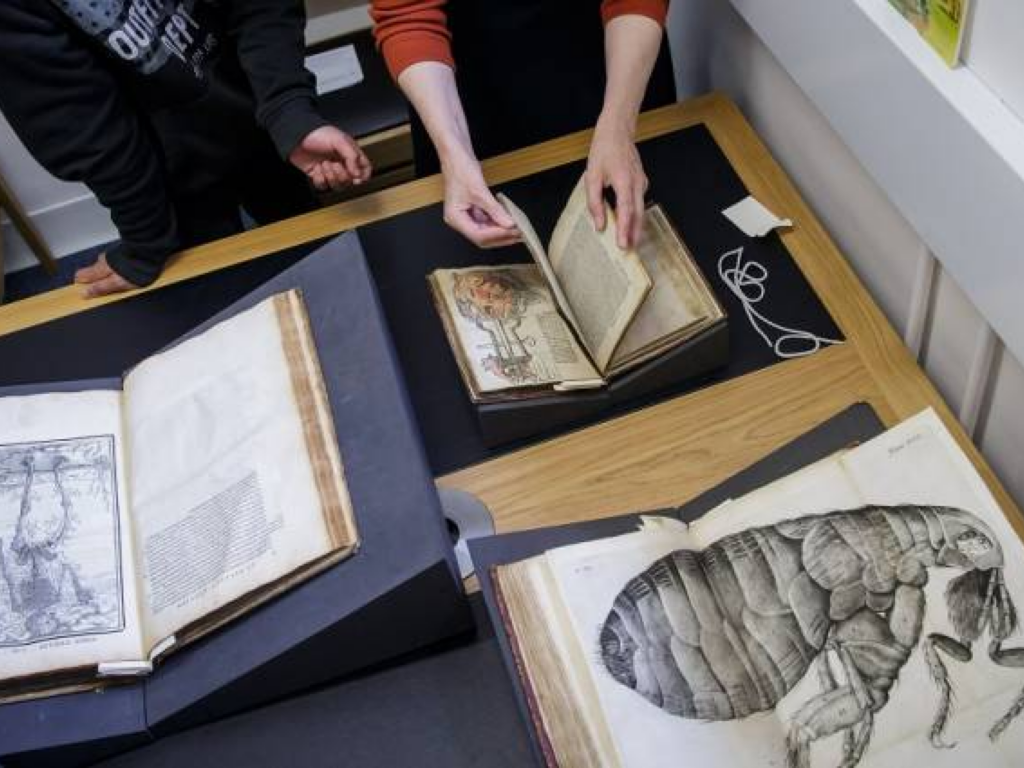UCL Special Collections

Description of the institution
UCL Special Collections is one of the foremost university collections of archives, rare books and manuscripts in the UK. We have specialisms across a wide range of subjects, including the histories of science, medicine, law, art, archaeology, architecture, education, languages, literature, social history (particularly of London) and political science.
UCL Special Collections collects, preserves and provides access to archives, records and rare books to support the research and teaching of UCL and to reflect the history of the organisation. The department aims to engage UCL staff and students and external audiences through academic teaching sessions, exhibitions, special events, community and school links and social media.
Example Of A Book Related Exhibition, Project
Books as Objects: University College London’s bomb-damaged books
Sarah Pipkin, Outreach and Exhibitions Coordinator, UCL Special Collections
Target audience: General, Students
In 1940, approximately 10,000 of UCL’s books and pamphlets were destroyed and damaged by bombing. Some were salvaged, despite being in extremely fragile condition. Among the salvaged books are three 18th century Greek works: Bibliothecae Graecae, Tou Xenophontos he tou Kyrou Anabasis, and Lysiae Atheniensis orationes Graece et Latine. Their condition is too poor to be displayed open without causing further damage. Instead, they’re used as objects in UCL Special Collections’ exhibitions, teaching, and outreach.
The three bomb-damaged books are displayed closed so their bindings can be seen. They all are visibly damaged, with leather lifting from the boards and bare, broken spines. By displaying them closed they can help audiences engage with history in different ways. In a 2023 visit from Year 13 students, one person asked if they could sniff the books to see if they still smelled of fire. In feedback responses, the bomb-damaged books were mentioned as one of the best parts of the visit.
Audience reactions can be divided, especially as displaying the books closed minimises their contents. Some find them very emotionally powerful, while others are frustrated they can’t read the books. However, that frustration can be redirected towards reflecting on the loss these books represent. They can be used to challenge audience’s understanding of history and think about what has been lost through war, disaster, and decay.
When thinking about how to display books, it’s important to remember their wear and damage can tell as much about a book as its contents. The contents of the bombed books are not nearly as interesting as the bulk of our collections. But it is invaluable for how it helps audiences connect with history. Books as objects can also help sceptical visitors understand why physical elements of history, like rare books, are important and worth preserving.
An offspring of Lodret Vandret is One Thousand Books; events conceived to enable and cultivate community around independent and self publishing. Through book fairs in supermarkets, exhibitions in public art spaces, workshops and seminars One Thousand Books has tried to challenge traditional ways of exploring the artists’ book.
Lodret Vandret was founded in 2010 by artists Flemming Ove Bech and Johan Rosenmunthe and operates not-for-profit. Bech and Rosenmunthe are available for workshops and talks to share their experience gained over the last eight years actively contributing to the international do-it-yourself publishing scene.
